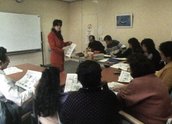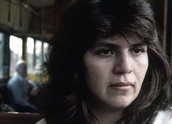


Homelands: View from the Edge (1993)
Synopsis
This documentary by filmmaker Tom Zubrycki follows the Robles family – Carlos, Maria and their four daughters – who came to Melbourne as refugees from El Salvador in the mid 1980s. Now that the fighting has stopped in their home country, they have to make a choice about where they want to live.
Curator’s notes
Homelands was Zubrycki’s first exploration of diasporic communities, migration and exile – subjects that he has continued exploring in The Diplomat (2000), Molly and Mobarak (2003), Exile in Sarajevo (as producer, 1996) and Temple of Dreams (2006). His own experience as the son of Polish migrants is introduced into the narrative of Homelands when Zubrycki poses the film’s central question (and dramatic focus): ‘when the fighting stops, how do you make choices about where you want to live?’.
The film tries to answer this question by following the emotional dilemmas the Robles family faces once the civil war in El Salvador has ended. The Robles had been living in Melbourne for seven years at the time Homelands was made, and the children especially now call Australia home. But for their parents Maria and Carlos, the idea of home and homeland has become a complex one, with each holding conflicting ideas for their future. During their time in Australia, Maria has learned to feel confident expressing herself in English, and teaches English to migrants. Her priorities are as a mother who wants what’s best for her children. If they want to stay in Australia, she’ll stay too. Carlos has always dreamed of returning to El Salvador and chooses to speak Spanish rather than English when expressing himself throughout the film. He has had a harder time adjusting to life in Australia (see clip one) and is more conflicted about staying.
Along with the impact of migration on family relationships, Zubrycki also touches on the enduring impact of torture (an experience common to many refugee migrants). Maria has suffered great trauma during her time as a political prisoner and was tortured during the civil war in El Salvador. Zubrycki creates a lot of breathing space in his films – for both the viewer and his subjects – with a slow accumulation of sensitively observed scenes and candid testimony from his subjects. This is strongly exemplified in two pivotal points during the film when Maria recalls her experiences as a survivor of torture (see clip two) and as a witness of the horrors in her village back in El Salvador.
The gentle pace is created through editing by long-time collaborator Ray Thomas, and Zubrycki’s camera holds still as Maria reveals her story in fragments. It is clear that Maria carries her trauma with her, but her journey has been one of courage where she has successfully built a new life. By the end of the film, she recognises that it has taken great courage to participate in the film and share her personal experiences with the broader community.
Homelands is a moving film told with great compassion and clarity. It touches on the complexities of the migration experience when coupled with the trauma of being a refugee. The cultural isolation that Carlos experiences in the film, along with his personal loss of dignity and status in his own family, are balanced well with Maria’s contrasting but equally painful experience. Zubrycki casts no judgement in his films and in Homelands conveys both Maria’s and Carlos’ differing experiences without devaluing either.
Ten years after this film was made, Zubrycki made Molly and Mobarak which similarly explored the lives of refugee communities in Australia, but by this time, the policies towards refugees had shifted and the Temporary Protection Visa introduced by the Commonwealth Government in 1999 gave Mobarak a whole new set of challenges that Maria and Carlos did not have to face.
- Overview
- Curator’s notes
- Video 3 clips

- Principal credits
- Find a copy
- Make a comment
- Map
- Add your review



